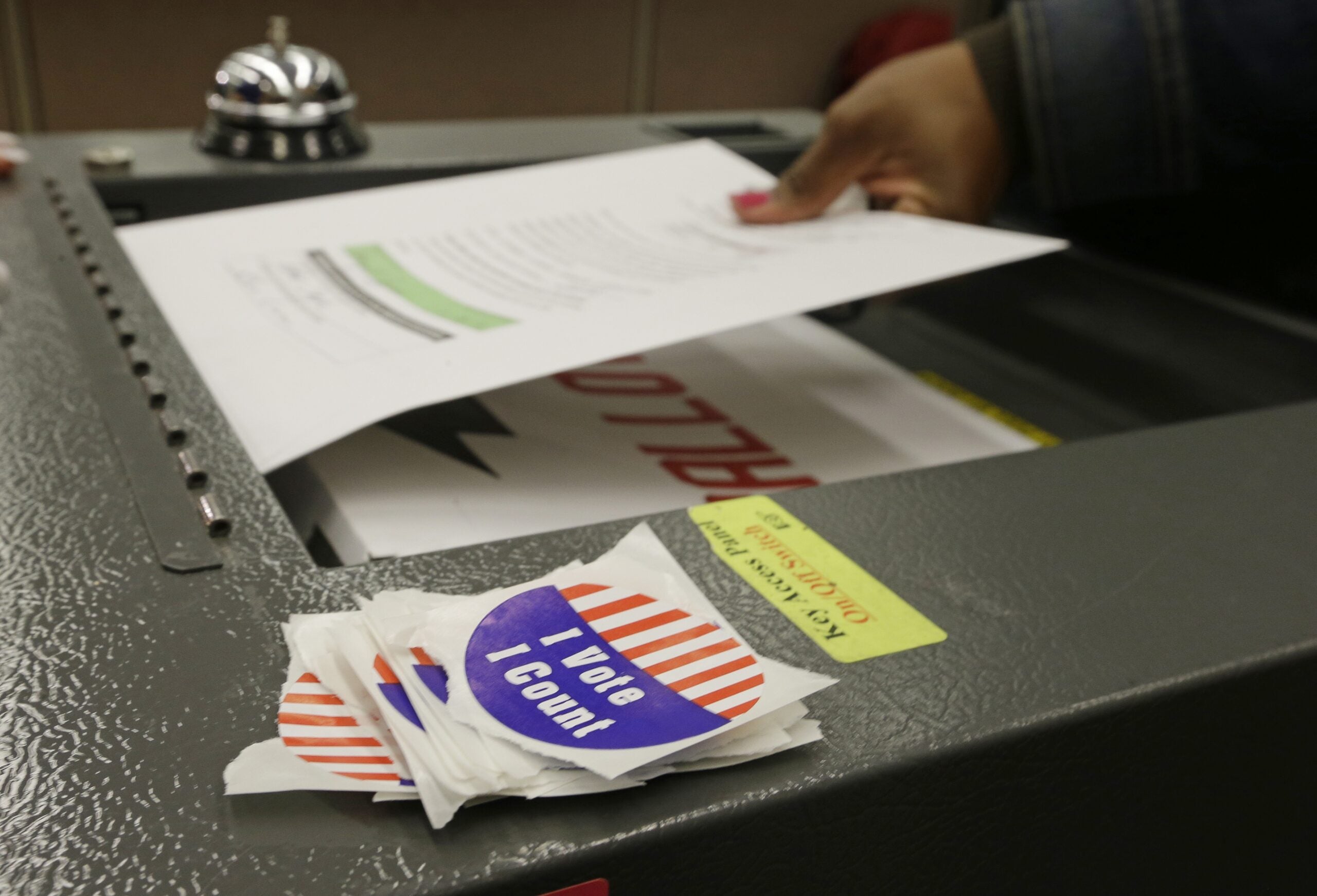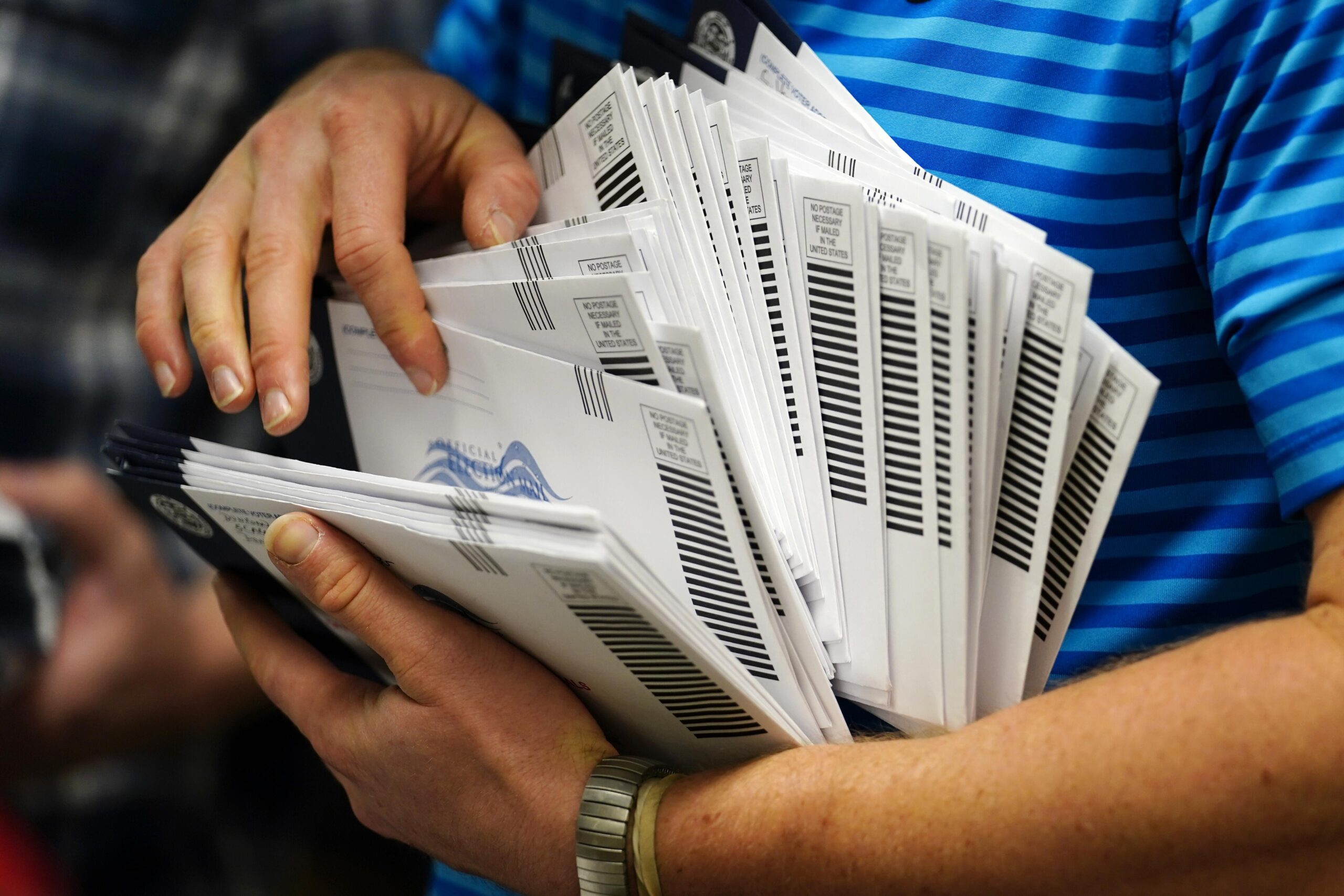Some Wisconsin communities, including Milwaukee and Madison, are shutting down or sharply cutting back in-person early voting locations for the state’s April 7 election as the new coronavirus continues to spread in the state.
The moves come as election officials continue to grapple with challenges posed by the virus and some groups call for the election to be postponed.
Officials have for weeks been urging voters to request mail-in ballots for the election. The deadline for requesting a mail-in ballot online or by mail is April 2; the deadline for their return is 8 p.m. on Election Day.
News with a little more humanity
WPR’s “Wisconsin Today” newsletter keeps you connected to the state you love without feeling overwhelmed. No paywall. No agenda. No corporate filter.
Milwaukee announced Sunday its three in-person early voting sites — Zablocki Library, the Zeidler Municipal Building, and the Midtown Center — would close effective immediately, citing challenges with maintaining adequate staffing levels at the sites.
“We’re having more and more workers at our early election sites who are declining to come in,” Milwaukee Mayor Tom Barrett said on a call with reporters Monday morning. “And they are making, in most cases, the prudent decision by not coming in.”
Many polling place workers are over 60 years old, which puts them at higher risk of developing serious illness from the new coronavirus.
The Madison City Clerk’s Office announced Monday it was also ending most of its already scaled back in-person early voting. The office closed its in-person voting sites in the clerk’s office and Municipal Building, but is maintaining its curbside voting option for individuals at high-risk of serious COVID-19 symptoms.
Beloit transitioned all in-person early voting to curbside service last week.
Oak Creek officials announced Monday they were also ending in-person early voting. In a press release, city spokesperson Leslie Flynn said the decision was “exceptionally difficult for all involved.”
“However, given daily increases in COVID-19 cases on the local level, a critical balance must be achieved between access to voting and the health of election workers and the public,” Flynn said.
Election officials have raised concerns about having adequate supplies, including hand sanitizer, to keep early voting sites clean amid the virus outbreak.
Gov. Tony Evers’ office said Friday it is working with the State Emergency Operations Center (SEOC) and Wisconsin businesses to increase supply of the products, which are facing shortages nationwide.
In-person early voting hours, dates and locations vary by municipality and are at the discretion of local clerks, for the most part. Municipalities may choose to start in-person absentee voting as soon as ballots become available, but it must end by close of business the Sunday before the election.
More Groups Call For Postponing Election
More political advocacy organizations across Wisconsin on Monday joined the chorus of voices calling for the April 7 election to be postponed.
In a call with reporters, a coalition of groups including Voces de la Frontera, Souls to the Polls, the League of Women Voters, and the NAACP urged Evers or the state Legislature to take action.
Christine Neumann-Ortiz, executive director of Voces de la Frontera, said most Latinx voters rely on same-day voter registration at the polls, an option that is less appealing amid the pandemic because of possible crowds on Election Day.
Polling places are exempt from the governor’s order limiting gatherings to 10 people.
“A decision to go ahead with this election will discourage people from voting and put them at risk of infection if they do vote in person,” Neumann-Ortiz said.
William Sulton, legal chair for the Milwaukee Branch of the NAACP, urged officials to cancel all in-person voting, even on Election Day, and transition the election to entirely mail-in ballots.
Other groups, including a coalition of northeastern Wisconsin mayors last week, have made similar requests for transitioning to a mail-in election.
Debra Cronmiller, executive director of the League of Women Voters of Wisconsin, said the election date should be moved back to allow clerks more time to process an influx of mailed ballots.
“The time needed to allow every eligible voter the opportunity to request an absentee ballot and to process that ballot at the clerk’s office and through the mail is greater than the two weeks we have prior to the existing election date,” Cronmiller said.
Some clerks across the state are receiving help from other municipal departments as they contend with a recent surge in mail.
With more than two weeks until Election Day, more absentee ballots have been requested across the state than in the 2016 presidential primary.
“As the 1 million voters around the state that would have typically voted in person make the right decision for their health to request an absentee ballot online, ensuring their safety, the incoming volume will be so great even with double (the) staff, clerks around the state will not be able to keep up,” Cronmiller said.
The Madison City Clerk tweeted Friday it was working through an email backlog of more than 15,000 messages, most of them requests for absentee ballots.
The governor has said he doesn’t believe he has the authority to move the election date, because it is written into state law. A state law change would require action by the Legislature or courts.
However, others have argued the governor’s emergency powers give him the authority to change the date.
Evers and Senate Majority Leader Scott Fitzgerald, R-Juneau, have both made public statements that the election should go on as scheduled, citing concerns about the effect of delaying elections for local offices like mayor and county executive.
On a Monday afternoon call with reporters, Evers said his message to Wisconsin voters was, “Stay at home, vote by mail.”
Wisconsin Public Radio, © Copyright 2025, Board of Regents of the University of Wisconsin System and Wisconsin Educational Communications Board.







